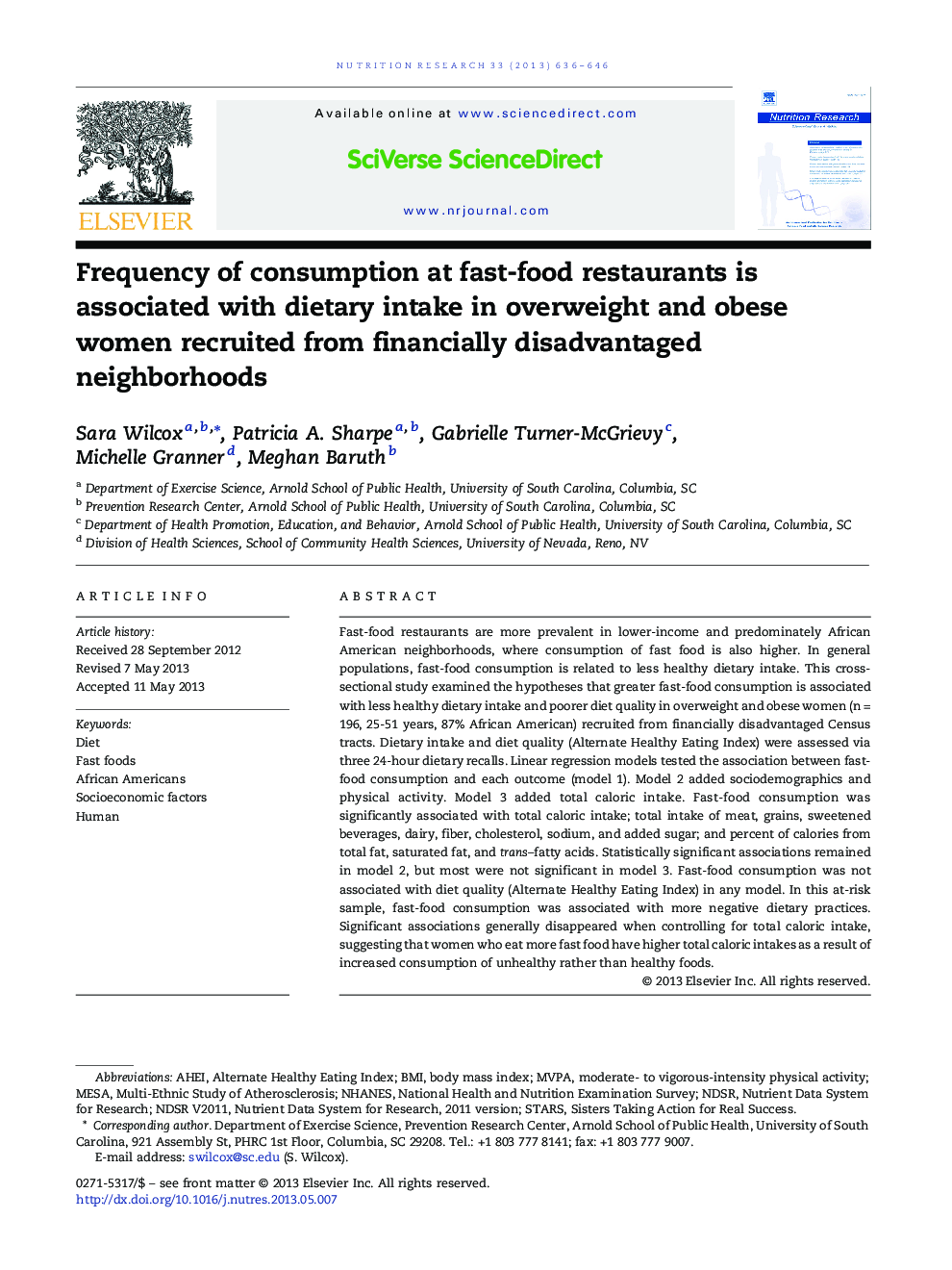| Article ID | Journal | Published Year | Pages | File Type |
|---|---|---|---|---|
| 2809299 | Nutrition Research | 2013 | 11 Pages |
Fast-food restaurants are more prevalent in lower-income and predominately African American neighborhoods, where consumption of fast food is also higher. In general populations, fast-food consumption is related to less healthy dietary intake. This cross-sectional study examined the hypotheses that greater fast-food consumption is associated with less healthy dietary intake and poorer diet quality in overweight and obese women (n = 196, 25-51 years, 87% African American) recruited from financially disadvantaged Census tracts. Dietary intake and diet quality (Alternate Healthy Eating Index) were assessed via three 24-hour dietary recalls. Linear regression models tested the association between fast-food consumption and each outcome (model 1). Model 2 added sociodemographics and physical activity. Model 3 added total caloric intake. Fast-food consumption was significantly associated with total caloric intake; total intake of meat, grains, sweetened beverages, dairy, fiber, cholesterol, sodium, and added sugar; and percent of calories from total fat, saturated fat, and trans–fatty acids. Statistically significant associations remained in model 2, but most were not significant in model 3. Fast-food consumption was not associated with diet quality (Alternate Healthy Eating Index) in any model. In this at-risk sample, fast-food consumption was associated with more negative dietary practices. Significant associations generally disappeared when controlling for total caloric intake, suggesting that women who eat more fast food have higher total caloric intakes as a result of increased consumption of unhealthy rather than healthy foods.
